27 Cool Japan Facts: Travel Tips and Japanese Culture

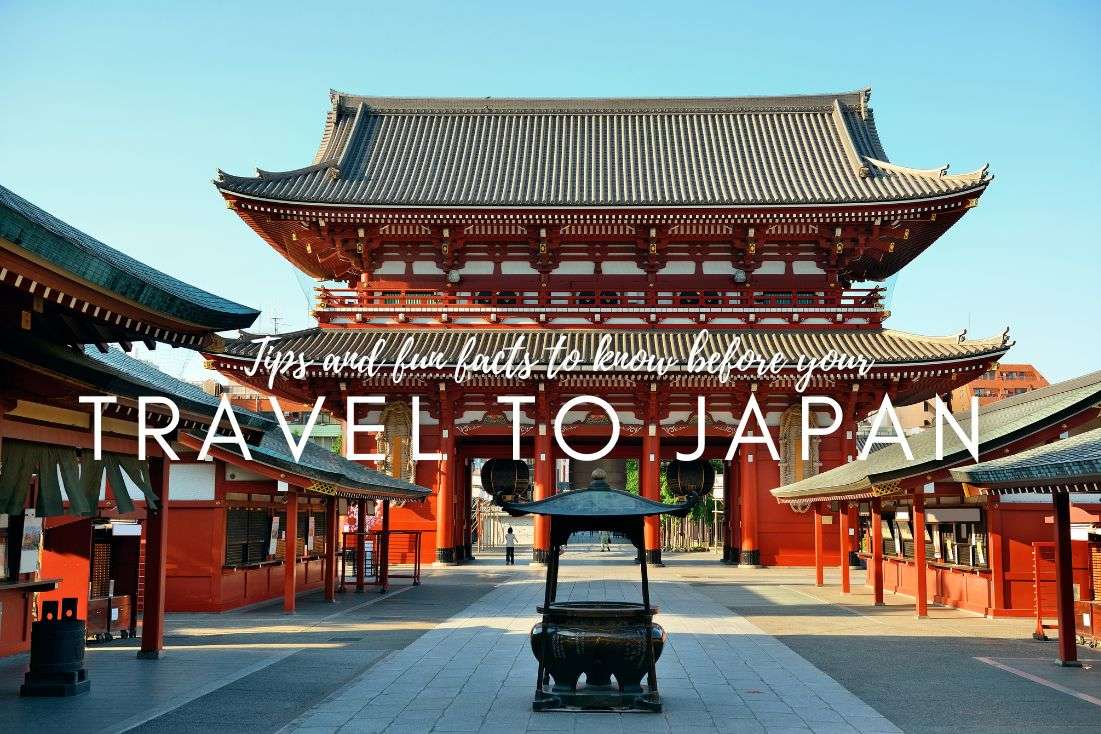
If you’re preparing for a trip to Japan, this article will make sure you’re ready for the inevitable culture shock that awaits you in the land of the rising sun. It’s the weirdest 1st world country you can imagine, and below you’ll also find some cool facts and fun facts about Japan that will surprise you.
My 27 Japan Travel Tips.
- Don't visit Japan in summer. Visit in fall/spring.
- You will pay a lot in cash
- Expect a lot of mosqitoes
- Tourist numbers are soaring after covid
- Bowing etiquette is real in Japan
- Always wear nice socks.
- Be nice. Japan is super conservative.
- Japanese love kids
- School is serious business in Japan
- Body shame is normal in Japan
- There are no trash bins – you will carry it with you
- Don't blow your nose
- There are no homeless people in Japan
- There are more ethnic groups in Japan. Not everyone is Japanese
- Japan is super clean
- Hotels/restaurants with mediocre reviews are okay
- From Kabuki to Cherry Blossoms: Experiencing Japanese Festivals
- The Art of Tea, Calligraphy, and Kimono
- Try Japanese Relax activities – Pachinko or Karaoke
- Learn the luxury of toilets – heated seats everywhere
- Japan is some of the most densely forested countries
- You will eat weird food – sometimes.
- Taste a real Wasabi – very different to horseradish
- Follow these chopstick eating rules
- Expect special etiquette for Sake
- Food in Japan is super cheap
- Never give out tips!
You can find all my experiences from Japan here.
You see that in my article, you’ll discover not only fun and fascinating details, but also some truly amazing facts about Japan.
Setting the Scene: Where in the World is Japan?
Geography and Location: Islands, Mountains, and Megacities
Let’s get our bearings: Japan is that incredible country in East Asia that’s basically a string of islands. Japan consists of more than 6,800 of them, to be exact! But don’t worry, you’ll probably spend most of your Japan adventure on the four main islands: Honshu, Hokkaido, Kyushu, and Shikoku.
Each island has its own vibe, from the snowy wilds of Hokkaido to the buzzing cities of Honshu. Japan’s geography is a wild ride—think dramatic mountains, lush forests, and coastlines that seem to go on forever.
The iconic symbol of Japan, Mount Fuji, towers above it all at 3,776 meters, and is a must-see for anyone who wants to say they’ve truly experienced Japan. But it’s not all nature: Japan’s cities are legendary.
Tokyo, the world’s largest city, is a neon-drenched metropolis where ancient shrines and futuristic skyscrapers exist side by side.
Kyoto is the heart of tradition, with its temples and geisha culture, while Osaka is famous for its food scene and friendly locals.
Living on the Pacific Ring of Fire means Japan gets its fair share of earthquakes and volcanoes, but Japanese people have built a resilient society that thrives despite these challenges.
The country’s rich cultural heritage is reflected in everything from its architecture to its festivals, making every trip to Japan a journey through both time and space.
Whether you’re hiking in the mountains, exploring the main islands, or getting lost in the backstreets of Tokyo, you’ll quickly see why Japan is one of the most fascinating countries in the world.
Japan Travel Tips to know before traveling to Japan for the first time
1. Don't visit Japan in the Summer. Visit in spring or fall
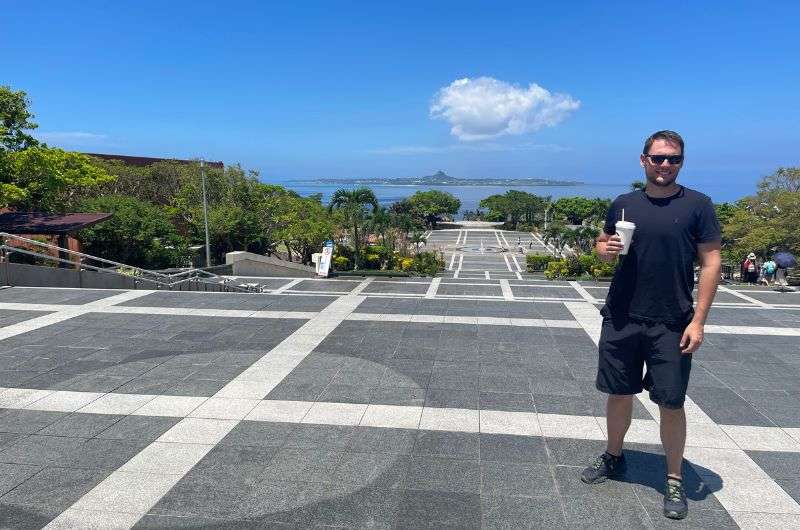
Summer in Japan is like a nonstop stay in the sauna. Maybe don’t visit Japan in August
Japan is hot! Like hot hot, with high humidity and temperatures in Honshu reaching daytime temps of 38°C (100 °F). It was just too much. Instead, March to May or September to October are much more manageable. There aren’t fewer crowds, especially in the spring, due to cherry blossom season, but at least you won’t be walking around like a human tempura.
2. Expect a lot of cash payments in Japan
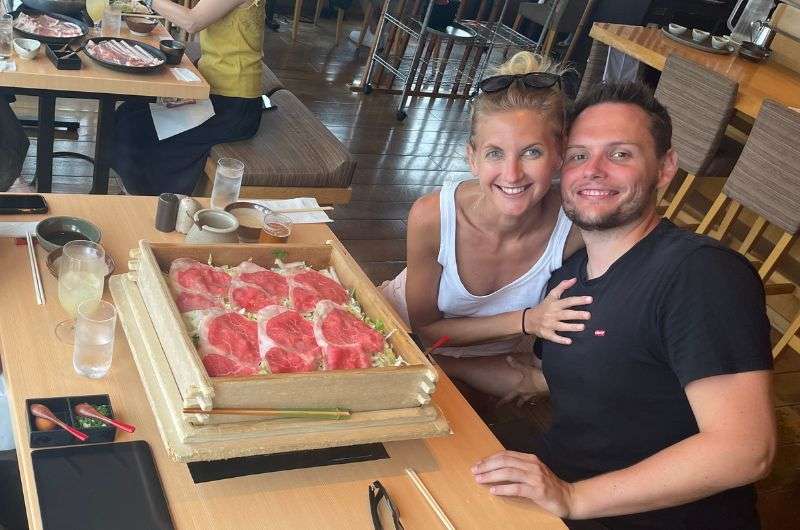
We ordered shabu shabu and, surprisingly, had to pay cash
In my 15 years of traveling, I've never seen anything quite like Japan's love affair with cash! Despite being hailed as a forward-thinking nation where you expect robots to take your orders and prepare your coffee, cards are often not accepted.
Why? Based on surveys, Japanese people prefer paying in cash because it’s the most widely accepted form of payment. How… logical. They also like that the transaction is finished right there on the spot, and tend to worry about data security. So, if you’re in the wallet business, Japan’s the place to focus on.
This cash preference isn’t just something you’ll run into in rural areas; it’s a general rule all over Japan. Tokyo tries hard to keep up with the future, but even there, you’ll want cash on hand.
It’s a good idea to come armed with some yen from your home country, because not all ATMs in Japan accept foreign cards, and you don’t want to be stuck at the airport after a long flight trying to figure out the exchange rates.
3. Expect many mosquitoes in summer
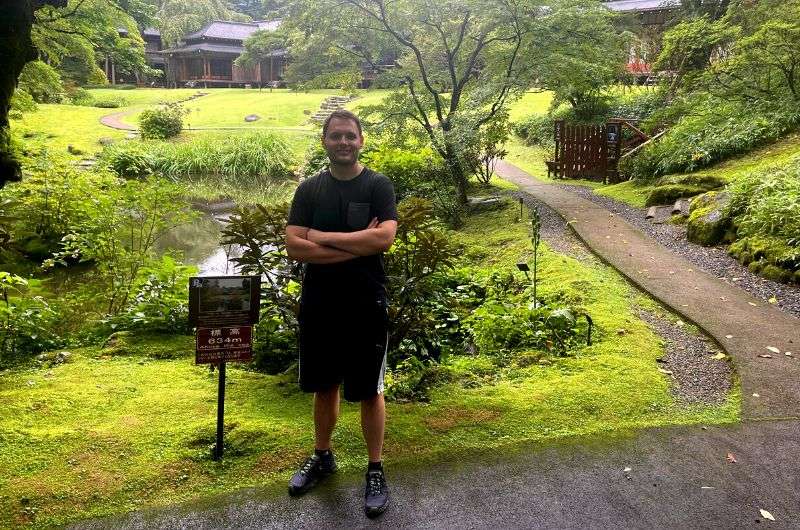
Don't forget your mosquito repellent!
Packing your bags for Japan? Toss in that mosquito repellent! Those little motherbuzzers are everywhere, especially in the months of May through September.
4. Tourist numbers are soaring after the pandemic
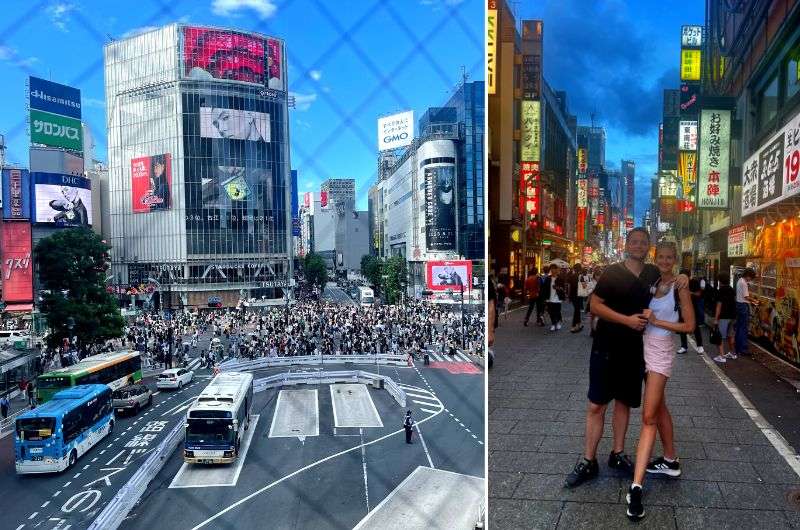
Is Tokyo ever really tourist-free?
After what seemed like ages, Japan finally scrapped all leftover pandemic travel restrictions in the first half of 2023, and the tourism numbers reflect this. Japan’s back up to over 2 million international visitors per month.
Still not up to the record year of 2019, when over 31 million visitors toured Japan, but getting there. It helps that the yen is weak, therefore turning Japan into a more affordable travel destination—get over there while the dollar still has superpowers in Japan!
But when you get to Japan, you’ll be scratching your head, wondering where the tourists hide in Japan. Among the sea of locals and the mostly Chinese and Korean visitors, white tourists are the rarest species, and you’ll often feel like you’re a white needle in an Asian haystack!
5. Bowing Etiquette in Japan.
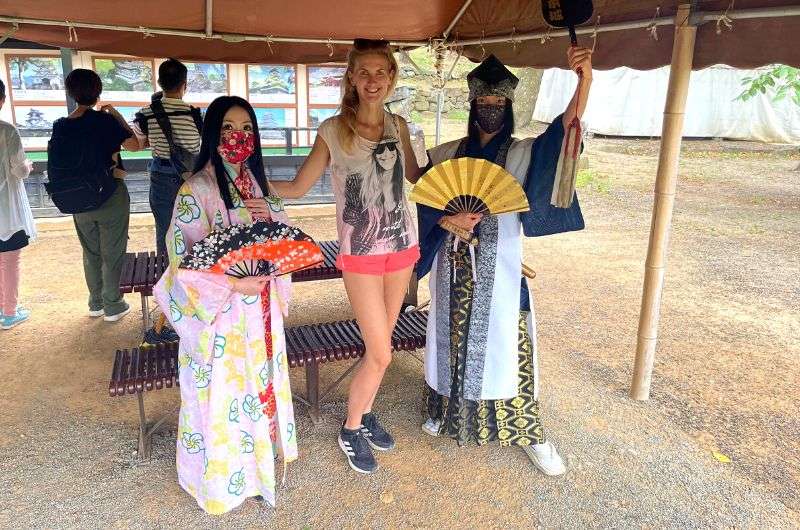
Bowing is a part of Japanese culture
If you're wondering about perfecting your bow before traveling to Japan, here are a few tips:
- As a tourist, you aren’t expected to bow, but it’s always a welcome gesture.
- You bow to say hello, goodbye, and thank you, or rather, as a reply to a Japanese saying hello, goodbye, or thank you. I dare you to start a bow-off as a foreigner!
- The Japanese bow is with a straight back, a 45° angle, and you bend from the waist, arms at your side, eyes down. The deeper the bow, the greater the respect shown. The tourist version can be a head nod (it felt really funny to fully bow, not gonna lie!).
- You are basically considered a dumb tourist who can’t get it right, no matter how hard you try. If you do bow, nobody is going to be offended if you bow incorrectly, stare while bowing, bow too low, too high, too many times, or not enough, etc. Yes, there are that many bowing rules.
Bowing is just one of the many gestures and polite considerations that you’ll be confronted with in Japan, so don’t focus all your energy on it. Speaking of which:
6. Always wear nice socks
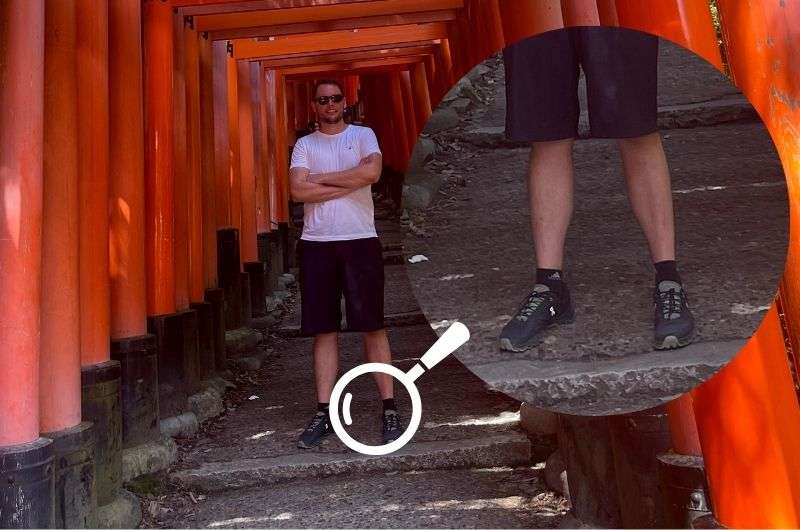
Be ready to have your socks examined! Get some nice ones so you don't offend the locals, you will be shoeless a lot in Japan
Your shoes will come off countless times in Japan: in temples, shrines, and even some restaurants! If you ever enter a Japanese home or a traditional inn, you will also be going shoeless.
You don’t want to be caught in bad socks, so bring your fancy ones when traveling to Japan. I can’t imagine the horror playing out inside a Japanese person’s mind if they see a tourist wearing seasoned socks. They obviously won’t show their true feelings, because that goes against all Japanese etiquette rules, but I’m sure you’d make them sweat in all the wrong places. So, be kind, wear nice socks.
Japanese people and culture facts
It’s impossible not to feel culture shock in Japan. Japanese society is just something else...
7. Japan’s conservative, hyper-correct culture
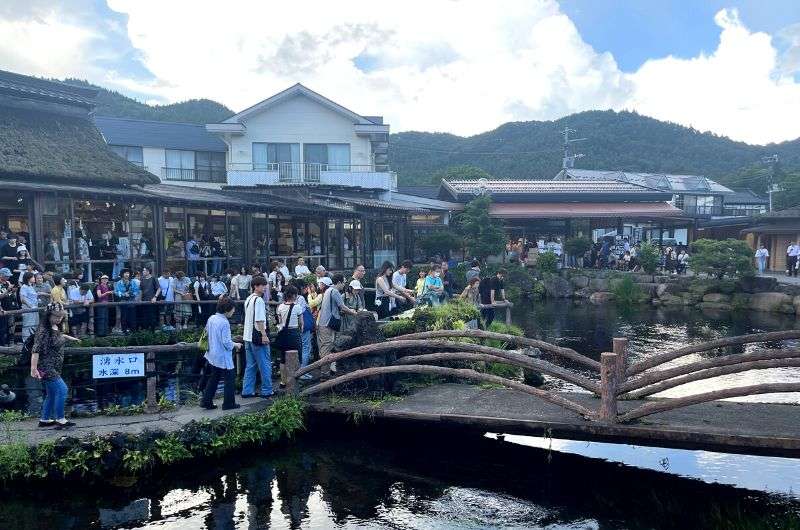
My personal space was intact in Japan. That made me happy
In Japan, the motto is “keep it low-key.” The society is very conservative, focusing mainly on not being a bother to anyone, which is why even on the busiest intersection in Tokyo, you’ll feel like everyone’s doing their best to be invisible.
People also tiptoe around issues rather than confront them, which makes it feel like there's a collective effort to dodge conflict (which there is). This isn’t as amazing as it sounds—can you imagine the amount of unspoken pain in the country?!
Got a problem? Keep it to yourself! Also, guess what else it considered a problem? Disabled people. Not sure where they hide them, but they sure as heck aren’t out in the open.
8. Japanese love kids!
Despite a low birth rate (just 1.4 births per woman), Japan is incredibly tolerant of children. Kids are a full part of society, so they are expected and respected everywhere. Discounts for kids hover around 70% off regular prices. It's as if they believe in nurturing the few they have!
9. School is serious business in Japan.
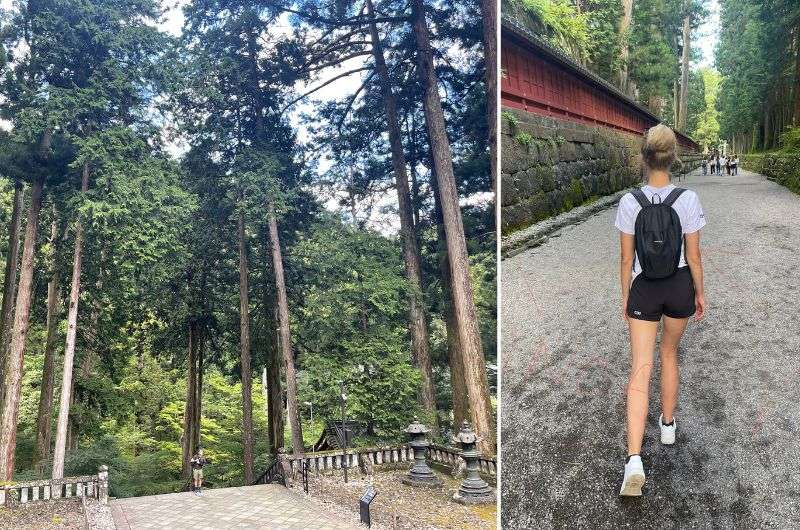
Walking around Futurasan Shrine
Everybody knows that the Japanese are a disciplined, polite people. And they drive this into their citizens the moment they start being able to pitch in. Basically, children are allowed to be children until they are 5 years old, and then, BAM!
You are now a servant. For example, children in Japan aren’t just students at their school; they're the cleaning squad and the lunch providers too. Its another of those fun facts about Japan that kids actually clean their schools daily.
Not only does it instill good values, but I’m sure it makes them think twice about making a mess!
And then, when Japanese kids turn 15, they are considered on par with adults. Fascinating.
10. Body shaming is normal in Japan
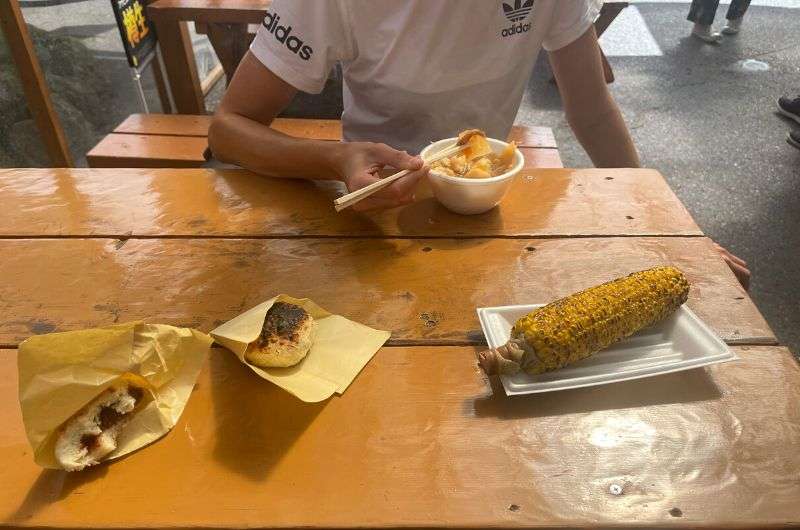
People in Japan have to watch their figure
Notice how everyone in Japan is slim? Well, the Japanese sure do. It’s a common thing for Japanese to talk about or comment on people’s physiques. They’ll talk to you about the weather, your job, and how thin or not you are, like it’s nothing.
Being overweight is considered unhealthy and unattractive, and it’s such a norm that nobody thinks twice about mentioning it. Japan is known for having one of the highest life expectancies in the world, which is often attributed to a healthy diet and an active lifestyle.
Offended? Honestly, I just think if you’re fat, in most cases it’s your own lazy, overeating ass’s own fault, so the talk is warranted. Eating fast food 5x a week just isn’t a disease! Sorry, not sorry.
11. There are no trash bins in Japan. Expect to carry it with you.

The natural beauty of Nikko National Park is worth preserving
You’ll need to navigate the streets in big and small Japanese cities without trash cans due to fears of terrorism since the sarin gas attack in 1995. But it’s not just that—keeping your garbage out of public areas is a thing of Japanese culture, too.
You see, the Japanese are very aware that public spaces are as much there for other people as they are for themselves, so it is considered polite to keep these spaces clean. And throwing your garbage away in a space that’s meant for others really doesn’t seem very considerate at all, does it?
So, how do you solve this problem? Carry your candy wrappers around until you get back to your hotel room (btw, our hotel in Okinawa?! Okinawa Kariyushi Resort EXES Onna: Epic!).
Imagine getting a cold in Japan… Good luck finding a place to throw your tissues away! Not that you can blow your nose anyway… read on.
12. You blew your nose?! You neanderthal!
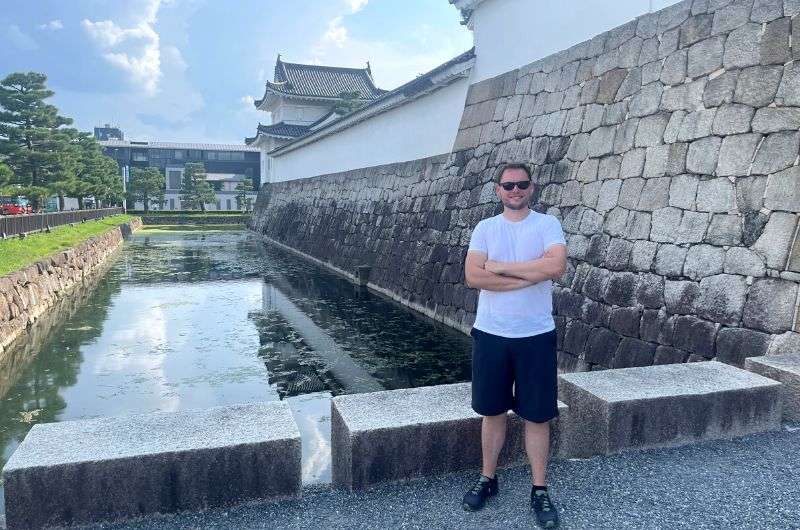
Etiquette is a big deal in Japan
When traveling in Japan, do not commit the horrible social crime of blowing your nose in public! It’s acceptable to sniffle and suck your snot back up your nose, but blowing your nose in public is like getting rid of any other bodily fluids in front of other people—completely inappropriate.
If you simply can’t wait, use a paper tissue to wipe your nose instead. Wipe! Don’t blow, and for the love of sushi, don’t make a sound while you do it. And turn away from any other humans—it’s like you’re the monster in Bird Box, you cannot see such horridness. I’m sure there’s such a thing as death by by bad etiquette in Japan.
13. There are no homeless people in Japan
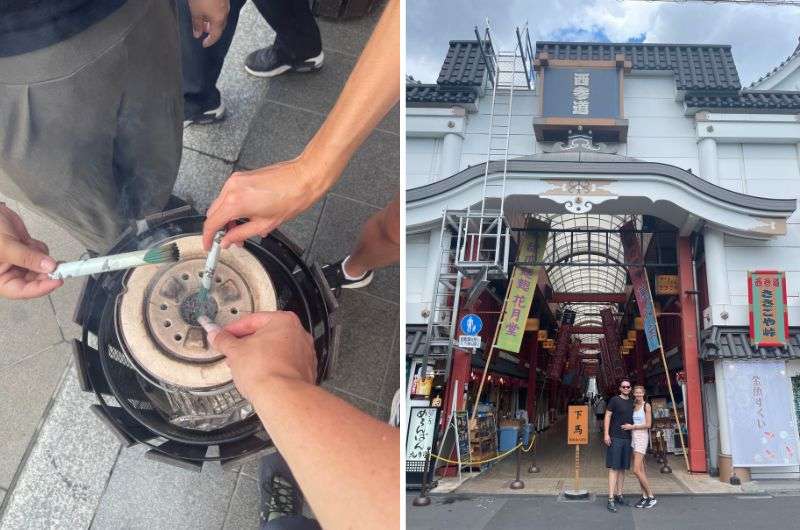
Experiencing Tokyo Sensoji
Japan is the only country in the world with a homelessness rate of close to 0%. While that sounds great, and you imagine every single Japanese person snuggled cozily into their own beds every night, things are not what they seem at first glance.
We’ve already talked about how the Japanese have mastered the art of making problems disappear from plain sight, right? So, even though you may not see them, it’s just an illusion.
Begging is illegal in Japan, and being homeless is shameful. So homeless people do everything they can to not be seen as homeless. The failure to be able to provide for yourself, especially if you are a man, is considered a huge embarrassment.
Cyber-homeless: Thousands of people basically live in cyber cafes, which are open 24/7 and paid for by the hour. They house men who look presentable and have some sort of low-paying job during the day, and stay in the cafe booths for a few hours every night to get some rest and a shower. Do you think they are part of Japan’s homeless statistics? Nope.
14. There are more ethnic groups in Japan, not everyone is Japanese
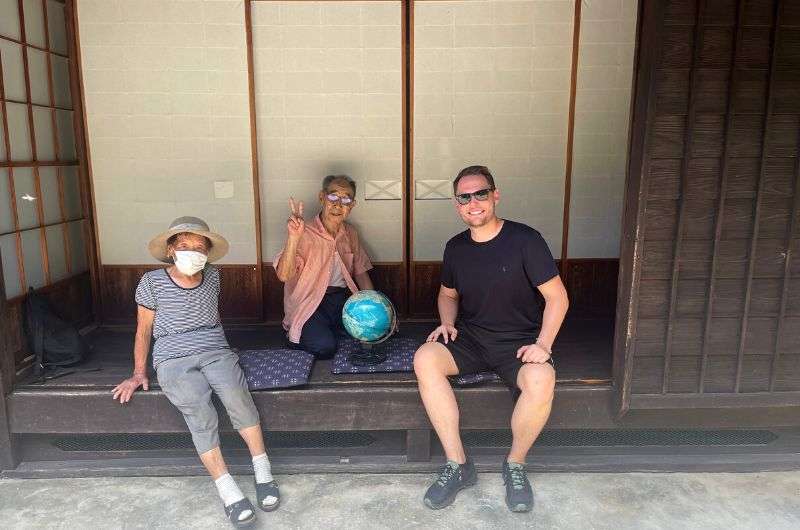
Chit chat with the Japanese
Ainu are the indigenous people living mainly up in Hokkaido, Japan's northern island. They've got their own language, traditions, and a lifestyle of living in one with nature. And they worship bears.
It’s a classic tale of the mainstream folks bullying indigenous people out of their homes and culture, and then finally realizing how idiotic they were being. Sort of. They’re now at least officially recognized, but to the Ainu, it’s more for show than any real reprimands (I know, because I, um, read it online).
On the outside, it looks like “hey, look at these cool people that also live in Japan!”, but then there’s the internal memo going around saying “they’re great for attracting tourists, but no worries, we aren’t giving them their land or rights back or anything”.
Today, the recognized Ainu population in Japan is around 25,000, although unofficial numbers suggest there might be 200,000 or more individuals of Ainu descent. The thing is, many of them have assimilated into Japanese society to the point where they might not even know about their Ainu heritage.
Traditional Arts and Festivals: Japan’s Living Heritage
16. From Kabuki to Cherry Blossoms: Experiencing Japanese Festivals
If you want to dive deep into Japanese culture, there’s no better way than joining in on one of Japan’s many festivals. These aren’t just parties—they’re living history, packed with tradition, color, and a whole lot of fun.
Take cherry blossom viewing, or Hanami, for example: every spring, families, friends, and coworkers gather under blooming sakura trees to eat, drink, and celebrate the fleeting beauty of nature. It’s a national obsession and a perfect example of how Japanese people respect both nature and the passage of time.
But that’s just the start. Ever heard of Kabuki? This dramatic, centuries-old theater is all about bold costumes, stylized acting, and stories that have been passed down through generations.
Then there’s Golden Week, a string of public holidays when the whole country seems to be on the move, and Obon, a summer festival where families honor their ancestors with lanterns and dances. New Year (Oshogatsu) is another big one, with traditions that bring families together and set the tone for good fortune in the year ahead.
Japanese festivals are a window into the country’s long history and the values that shape daily life—community, family, and a deep respect for nature. Whether you’re watching fireworks, joining a parade, or just sampling festival food, you’ll feel the energy and warmth that make Japan’s festivals truly unforgettable.
17. The Art of Tea, Calligraphy, and Kimono
Step into the world of Japanese traditional arts, and you’ll discover a side of Japan that’s all about mindfulness, beauty, and respect for nature. The Japanese tea ceremony, or Chanoyu, is more than just sipping green tea—it’s a carefully choreographed ritual that celebrates simplicity, harmony, and the changing seasons.
Every movement, from the way the tea is whisked to the placement of the utensils, reflects centuries of tradition and a deep appreciation for the moment.
Calligraphy, known as Shodou, is another cornerstone of Japanese culture. Watching a master calligrapher at work is mesmerizing—the brush glides across the paper, creating characters that are both words and works of art.
It’s a practice that demands patience, creativity, and a steady hand, and it’s still taught in schools today as a way to connect with Japan’s rich cultural heritage.
And then there’s the kimono, the ultimate symbol of Japanese elegance.
These stunning garments, with their intricate patterns and vibrant colors, are worn for special occasions like weddings, festivals, and tea ceremonies. Each kimono tells a story, reflecting the wearer’s status, the season, and even the event itself.
These traditional arts aren’t just relics of the past—they’re living traditions that continue to inspire Japanese people and visitors alike.
Whether you’re sipping matcha in a tranquil tea room, trying your hand at calligraphy, or admiring the beauty of a kimono, you’ll gain a new appreciation for the artistry and respect for nature that define Japanese culture.
Travel Tips in Japan
Once you make it to Japan, you’ll notice some peculiarities...
18. It’s true: Japan is very clean
It’s not just the absence of trash cans that keeps the trash off the streets; it’s just the way Japanese people are. So... tidy! I love clean (do you also despise leaving dirty dishes in the sink before you go to bed?!), so Japan was heaven for me. You can really tell those kids learned to clean at school, because they turned into adults who don’t take “messy” for an answer!
On another note, it’s not as futuristic as you might imagine. If you look past the robots and vending machines, it’s all a little dated. This is one of those quirky fun facts about Japan - you’ll find vending machines on almost every corner.
It’s like the United States in the 80s and 90s. Probably because they were ahead of their time in the futuristic department way back when, but now that the world has caught up, Japan is standing still (or at least that’s what it looks like when you visit).
19. Hotels/Reviews with mediocre reviews can be good
Every time I read a hotel or restaurant review written by Japanese people, I thought the place would certainly suck... but it’s just that Japan is notoriously strict in everything, including reviews. This is a good thing to know if you’re traveling to Japan, because you can then be on the lookout for places with good reviews and still be certain they’ll probably be great.
So, if someone describes a restaurant as “fine, the food was good, the server wasn’t rude”, they most likely had an incredible meal with a server that treated them like VIPs.
Tip: “Tabelog” is the best app for restaurant ratings in Japan. Anything above a 3.5 will be great, despite the low number.
20. Try Japanese Relax activites : Pachinko or Karaoke

My girlfriend sang this famous Miley Cyrus song at a karaoke bar in Tokyo. She nailed it!
Everybody knows about the karaoke mania in Japan; we tried it out, too, obviously. It’s honestly good fun, and some of the karaoke houses are massive!
But then there are places like maid cafes where waitresses are dressed like maids. They greet customers as their masters and tend to them in a friendly, maid-like manner, even drawing cute pictures onto their food or breaking out into song and dance. Yes, it’s weird, but it’s very Japanese.
And what about the manic craze of Pachinko games? The pinball machine turned “secret” gambling game is the loudest thing you’ll ever experience, especially in otherwise quiet and reserved Japan. Its name comes from the sound the metal balls make in the machine “pachi pachi” (you have to repeat that super-fast and loud to get the idea), and when you add the music, sounds, and flashing lights of each pachinko machine, you get a headache really fast.
It’s “secret” gambling, because gambling is banned in Japan. But since you’re playing for metal balls, Pachinko is just fine. To get your cash winnings, you have to go to a separate building, hence it isn’t actual gambling… what a ridiculous loophole!
21. Learn the toilet "luxury" - heated seats

It’s me. This seal’s face was literally me
Japanese toilets are the VIP treatment for your rear end. Not only do they have control panels with a myriad of different options of butt-washing functions, but they’re heated, too! Nothing quite compares to the bliss of a heated toilet seat.
I got so used to it that when our hotel in Tokyo (Nohga Akihabara) didn’t have heated toilet seats, I was genuinely offended. Do they think tourist asses don’t deserve to be pampered?! It's a game-changer, I promise.
Note: Not to talk down to Nohga Akihabara Hotel, it was otherwise amazing. It was the only hotel in Japan that managed to keep the (tiny) rooms dark enough at night for some quality beauty sleep (what, did you think I was born this handsome?).
Cleanliness and an active lifestyle also contribute to why Japanese people live so long.
22. Japan is one of the most densely forested countries
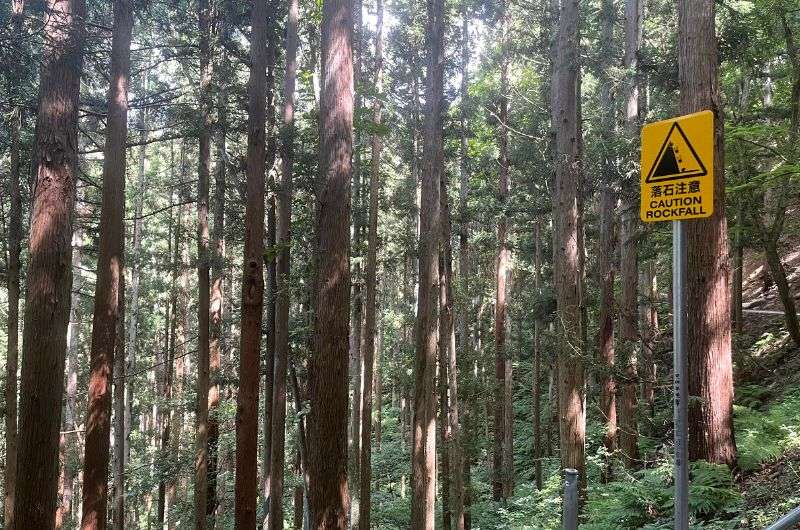
This is a forest of the Jigokudani Monkey Park in Nagano
Japan consists not only of crowded megacities but also of dramatic mountains and dense forests, making it one of the most diverse landscapes in East Asia.
A whopping 68% of Japan is covered by forests, which, in on par with places like Finland and Sweden. To me, Japan’s forests reminded me most of California’s redwoods. The sugi, or Japanese redwood, is Japan’s national tree.
And you’ll have to try very hard to find a flat picnic spot in Japan, because the country is 80% covered with mountains, and though not extremely high, they are steep. You'd better have that picnic in Tokyo, which is unusually flat.
Japan’s highest mountain, Mt. Fuji, is a volcano that’s been sleeping since 1707. It’s gorgeous and on everyone’s Japan bucket list for a reason. You can climb it (watch out for altitude sickness), but I’d suggest spending a few days in the surroundings and making a side trip out of it. Hakune offers plenty of things to do.
Fun fact: Japan has the highest density of bears in the world. I wondered why everyone had bells on hiking trails.

In Japan, everything is so clean and precise, but at the same time, quite old
Travel Tips and Fun Facts for Japanese Food
Japanese cuisine is renowned for its use of seasonal ingredients and the central role of fish in many traditional dishes, reflecting a deep connection to nature and cultural heritage.
23. Expect some strange food
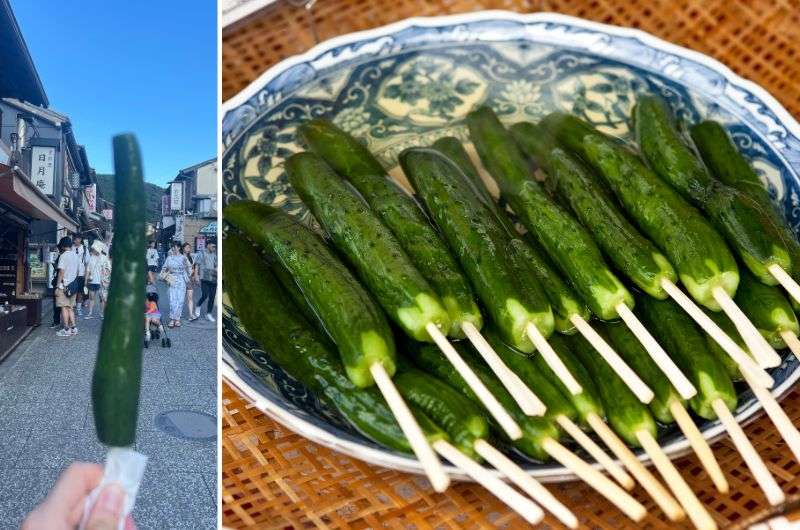
You see how it looks?
Especially on hot days in the city or at large events, you’ll see everyone walking around eating whole cucumbers on sticks. And you won’t think I’m so childish to mention how ridiculously phallic it looks once you see it, because it simply does!
The cucumbers are pickled and are sold at street vendors and in stores, so you’ll probably get your own dick on a stick sooner or later. It is refreshing, not gonna lie.
24. Taste the real wasabi – it's very different from the one in the West
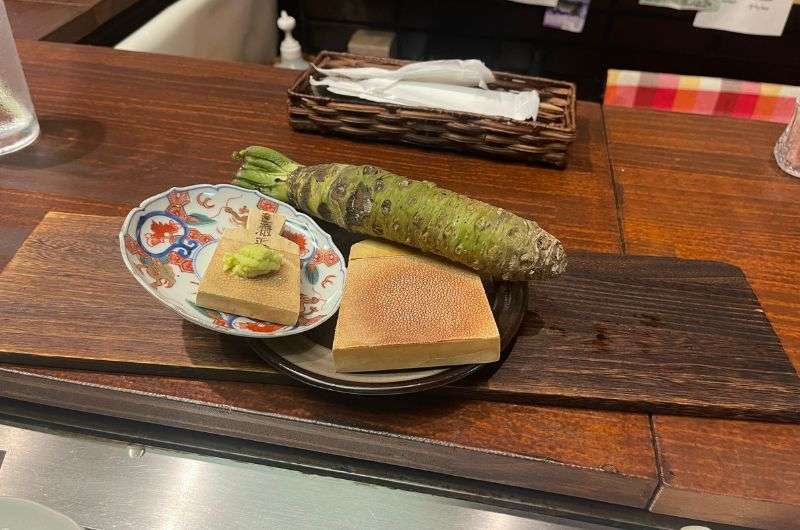
This is the real deal
If the wasabi you eat is very pasty and thick, it’s likely fake, and it sure as heck wasn’t grated on shark skin, as it’s supposed to be. And they’ve added green coloring to it.
The real wasabi plant is so high-maintenance that it’s either impossible or very expensive to get outside of Japan, so unless you are a Japanese food connoisseur, your wasabi is probably not the real deal.
25. Follow these 5 basic chopstick rules
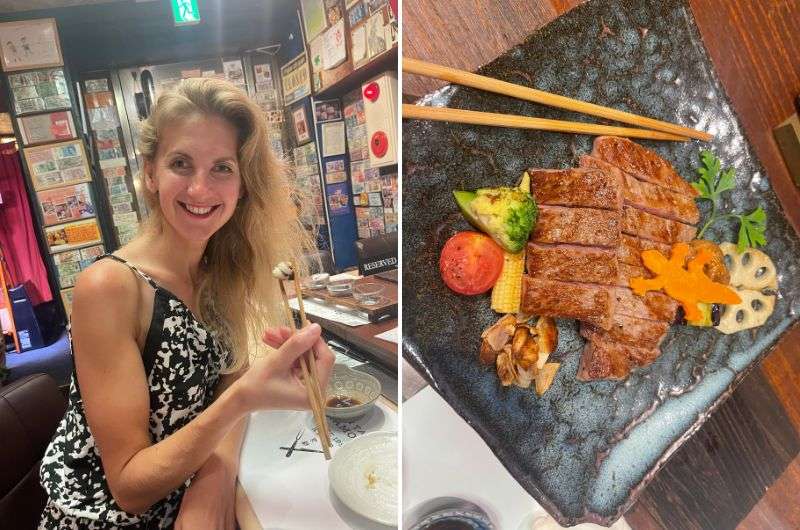
Eating with chopsticks has its own rules!
- It’s impolite to point to people with chopsticks, so even if you put your chopsticks down, put them at an angle so they aren’t pointing to the person sitting across from you.
- Don’t rub your chopsticks together. It implies that you think the restaurant gave you bad-quality chopsticks.
- Don’t stick your chopsticks upright in your food. This is similar to a tradition that’s done at funerals. Similarly, don’t pass food from chopsticks to chopsticks (unless you want to look like you’re passing around a dead person’s bones following cremation). And don’t cross your chopsticks when you put them down (also something about death).
- Don’t stick chopsticks in your mouth, pick your teeth with them, or lick them.
- Once you are done eating, put disposable chopsticks back into their bag; non-disposable chopsticks are laid to the left of your plate or bowl.
Fun Fact: It’s also home to the world’s oldest company, Kongo Gumi, which has been building temples since 578 AD.
26. Know your sake etiquette
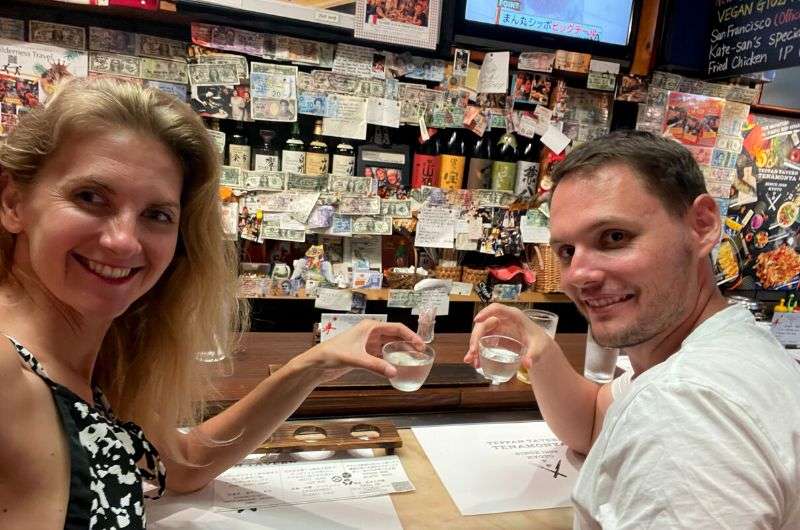
乾杯!
Sake is a Japanese rice liquor that is mostly enjoyed during the appetizer portion of your meal (but you can keep sipping it with your sushi, and you’ll sometimes also get it as a digestive).
You can have it hot or cold, but remember it’s not a shot, so sip it slowly like you would wine. It’s a social drink, so if you finish your (tiny) cup, there will be somebody who will probably refill it. If you don’t want a refill, keep a bit of sake in your cup. Oh, and hold it with both hands.
Top-quality sake is never consumed hot, because the heat would destroy the precisely brewed smells and tastes that they worked so hard to get in there. Then again, you also don’t want your sake super cold, which does nothing for the taste, either.
I have an entire other article on Food in Japan, so if this is a topic you’re interested in, hop on over there. I’ll even tell you about the secret society restaurant we managed to get ourselves into (don’t expect anything fancy, it was in a basement!).
26. Food in Japan is super cheap
Japan is known to be an expensive country to visit, but you know what surprised me? The cheap food! I like a high-quality meal, and we ate to our hearts' content during our trip to Japan this past summer, and the food budget stretched waaaay further than I imagined!
To give you a comparison, most of our dinners would have cost 3x as much in the US. And we’re talking epic, mouth-watering meals. I’m hungry just thinking about it... Read my article about Food in Japan for more inspiration.
Fun Fact about Japan: Japan, known for having one of the highest life expectancies in the world, surprisingly offers food that’s cheaper than many expect.
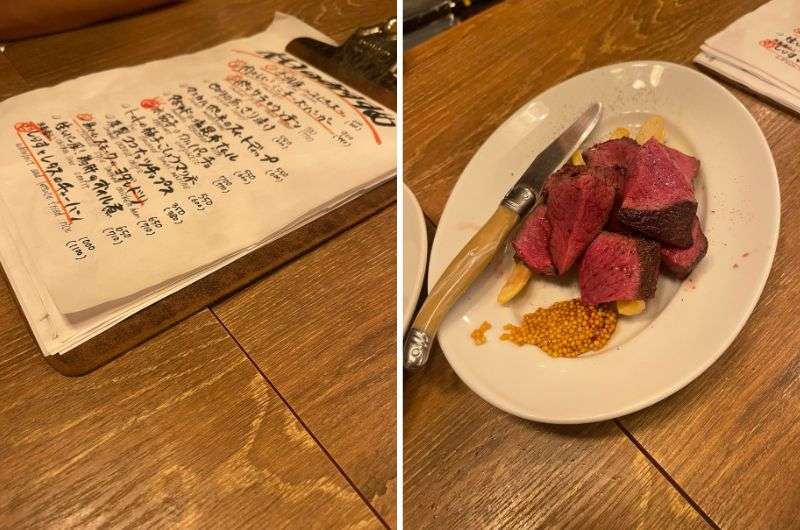
Japanese food is cheap... who would’ve thought?
27. Don't tip!
Considering the amazing service you’ll almost always get in Japanese restaurants (and basically everywhere else, too), it may feel weird not to tip, especially if you’re from the US, where tips are like half of what you spend in a restaurant. Seriously, don’t do it. It’s offensive, and your tip will likely be returned to you.
Bringing your cash to a restaurant or other establishment and spending it there is considered enough; you don’t need to subsidize anybody’s pay while you're at it. It’s just a no-no in Japan.
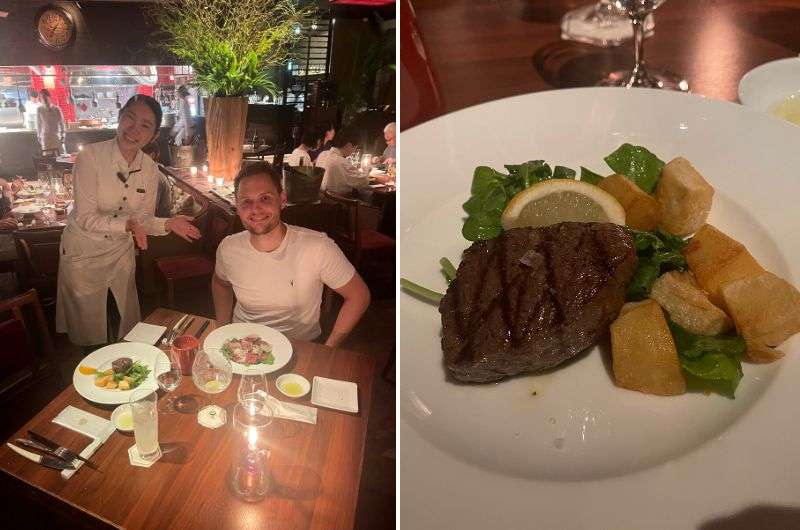
We were very happy with our server at the Fujia Gohonjin Restaurant. A tip would not be a compliment for her, though
To sum up my Japan Travel tips
Japan is one of the few destinations that really ages in time and ages like wine. I didn’t like it that much when I came back, but in time, it slowly moved up in my imaginary ranking of destinations. Mainly because it's so different then any other country in the world.
Takeaway Top Travel Tips for Japan - I call it TTTT, no, just kidding.
- Japan is cheaper than you think
- Japanese are super ultra polite
- Never ever tip in a restaurant
- Bring cash
- Japanese drive slowly
These fun facts about Japan prove why the country leaves such a lasting impression.
This post contains affiliate links. I earn a small commission if you make bookings through my links, at no additional cost to you. Thank you for your support!



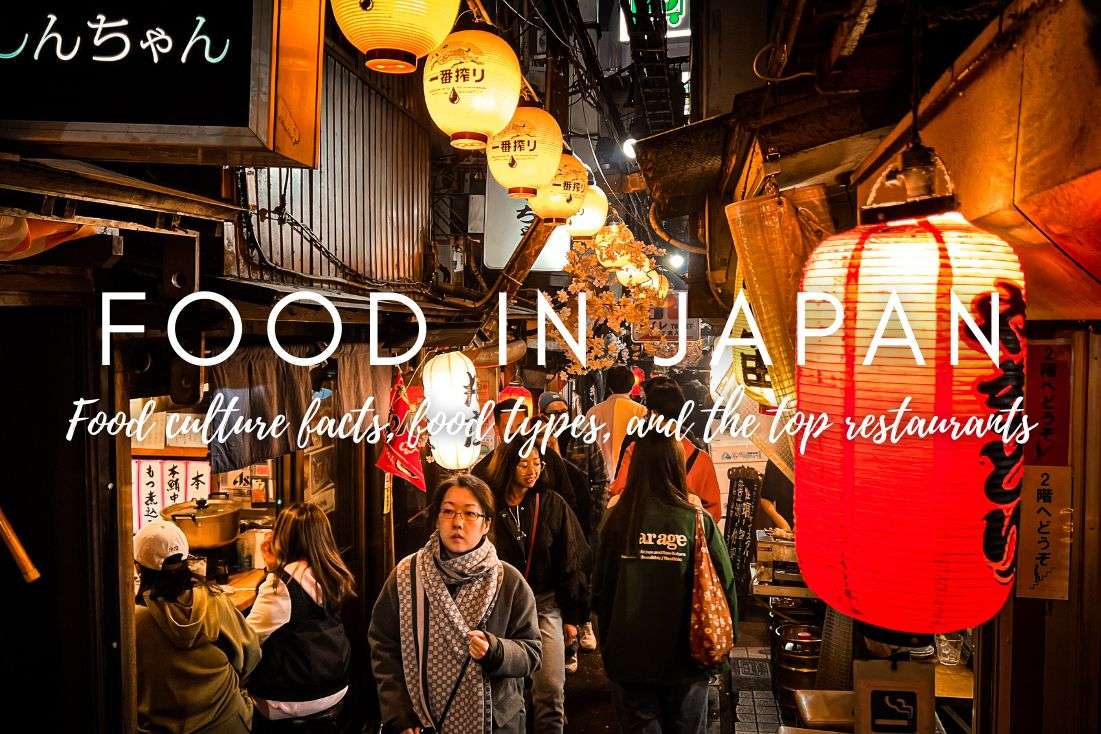
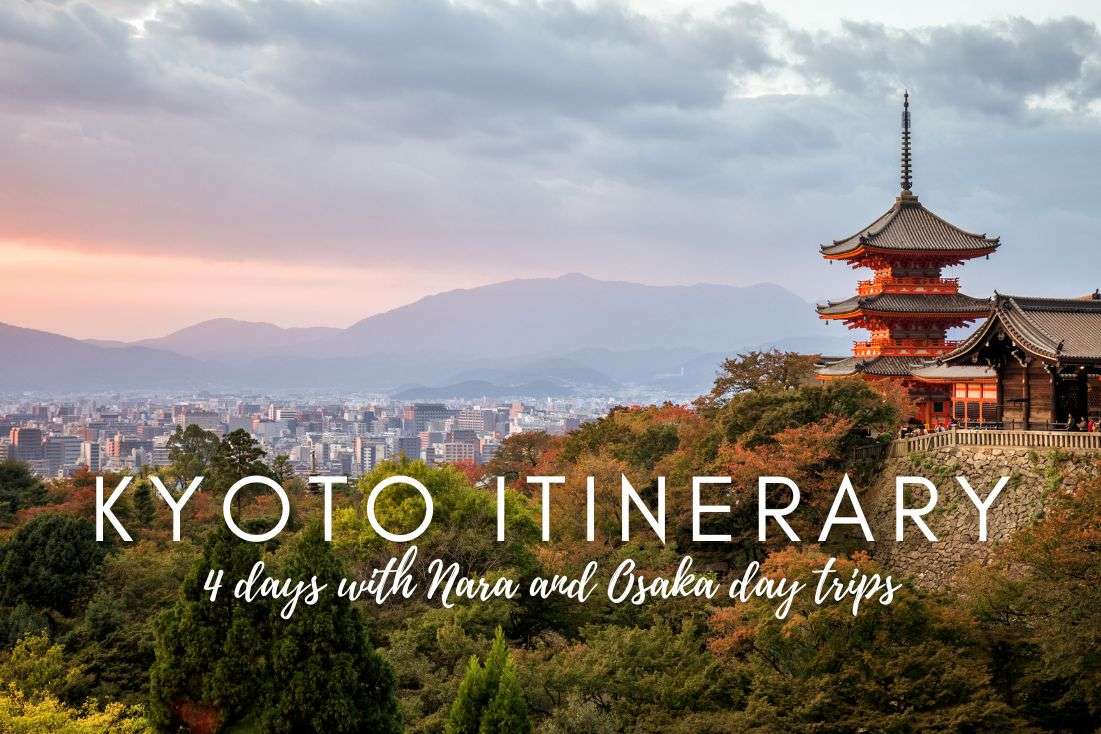





Comments | Thoughts? Give us a shout!